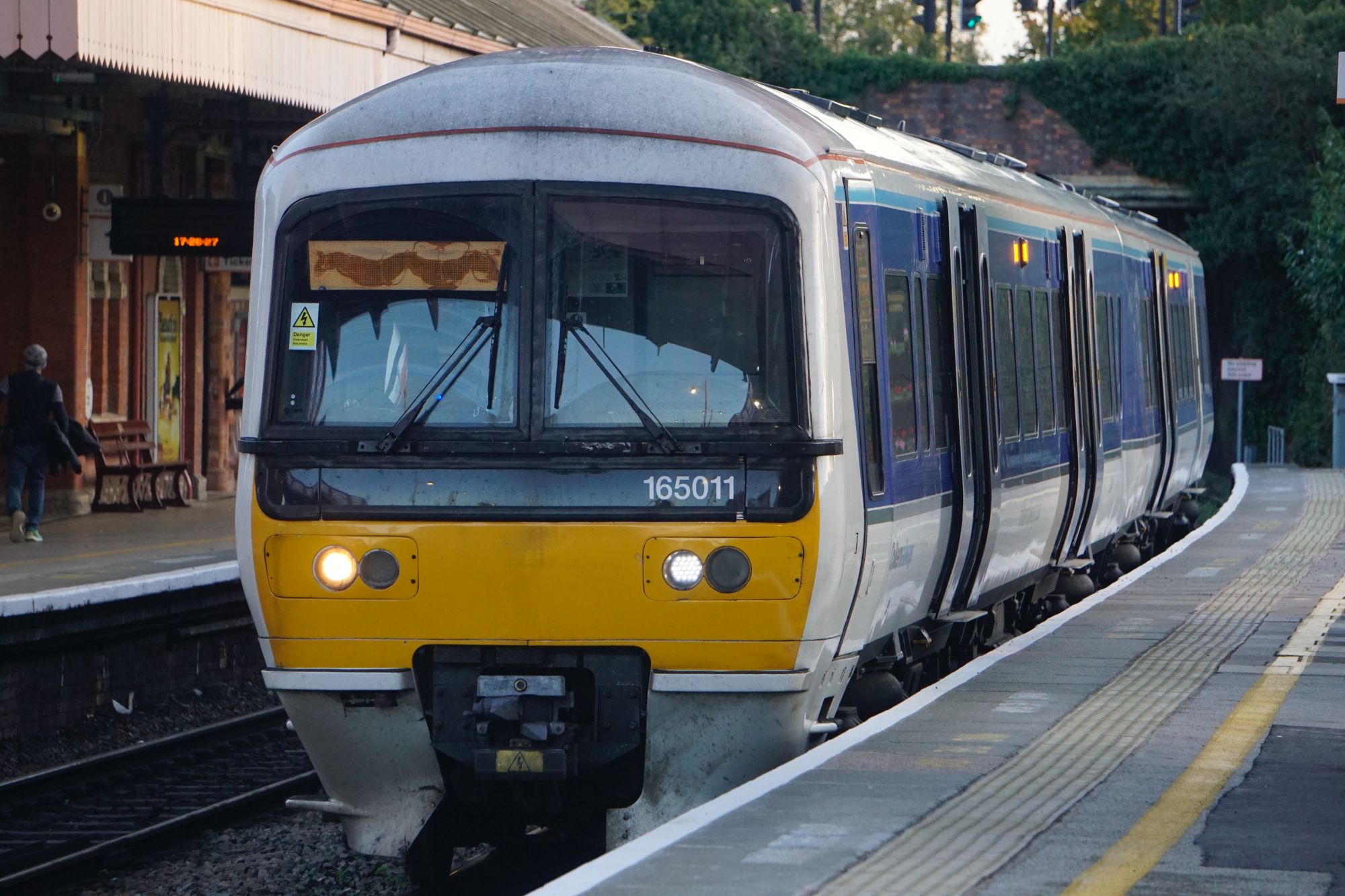An Intro to RSAS Training and its Importance for Railway Safety

Backed by the National Police Chiefs’ Council and British Transport Police, the Rail Safety Accreditation Scheme (RSAS) enables vetted, trained, approved railway staff to play a pivotal role in ensuring the safety and security of passengers, staff and assets for any rail company.
In this blog, you’ll learn about what RSAS training covers, its benefits for both railway staff and companies, and the route to attaining accreditation.
What is RSAS?
The Rail Safety Accreditation Scheme, or RSAS, is a certification programme developed to empower selected railway staff, or security staff contracted by the railway with the knowledge, skills, and authority to address safety and security issues within the railway network. As part of the wider police family, and as directed by the Police Reform Act 2002, the programme is designed to enhance the abilities of trained staff to manage incidents and uphold safety and security standards in the railway community, and in cooperation with the police force for the area, safely and effectively combat crime and disorder, public nuisance and other forms of anti-social behaviour. RSAS is a crucial part of ensuring a safe and secure
environment for passengers, staff and the rail network as a whole.
How RSAS Benefits Staff & Railway Companies
- Empowering Railway Staff
Our approved training empowers RSAS teams by providing them with the necessary skills, powers and knowledge on the ground. This includes responding to incidents, managing crowds, and effectively communicating with passengers in emergency situations. RSAS training equips staff with the tools to handle potentially dangerous situations, which is essential for the safety of all involved. The training under the Act is tailored to an individual company's needs, values and objectives.
- Enhancing Passenger Safety
The primary goal of RSAS is to ensure the safety of the railway community passengers and staff. By training railway employees to respond effectively to aggressive situations, criminality, emergencies , security and safety concerns, RSAS significantly reduces the risks associated with rail travel. Passengers can rest assured that in the event of an emergency, well-trained staff will be there to guide and assist them. RSAS staff are not Police officers, but if the Chief Constable of BTP thinks it is necessary, they can and do delegate certain police powers to the team to help them to fulfil their function under the Police Reform Act 2002 and as part of the wider police family. With power comes great responsibility and it is essential that the training given to these teams is second to none. primary goal of RSAS is to ensure the safety of the railway community passengers and staff. By training railway employees to respond effectively to aggressive situations, criminality, emergencies , security and safety concerns, RSAS significantly reduces the risks associated with rail travel. Passengers can rest assured that in the event of an emergency, well-trained staff will be there to guide and assist them. RSAS staff are not Police officers, but if the Chief Constable of BTP thinks it is necessary she can and does delegate certain police powers to the team to help them to fulfil their function under the Police Reform Act 2002 and as part of the wider police family. With power comes great responsibility and it is essential that the training given to these teams is second to none.
- Mitigating Security Risks
In today's world, security is a paramount concern. RSAS training helps railway staff understand and address potential security threats, such as terrorism or county lines drug teams . RSAS teams develop, collect and share intelligence with the Police. Because the teams are vetted and approved by BTP, they benefit from enhanced intelligence briefings and become part of targeted operations. By increasing the security awareness of staff, RSAS contributes to the prevention and management of security risks.
- Improving Incident Management
RSAS accreditation enables railway staff to efficiently manage incidents. This includes everything from accidents and medical emergencies to security breaches. Properly trained staff can initiate response measures promptly in association with Police personnel, making all the difference in critical situations.
How to Obtain RSAS Accreditation
Obtaining RSAS accreditation is a comprehensive process. Here are the key steps to obtaining RSAS accreditation:
1 - Eligibility Assessment
Railway or security companies must first be assessed as :
- Fit and proper to supervise the activities required by accredited teams under the Police Reform Act 2002
- Have a complaints procedure
- Have a recruitment policy
- Have a code of conduct
- Have sufficient Insurance.
The company must determine the eligibility of their staff for RSAS accreditation. Eligibility criteria typically include having a clear criminal record and the ability to pass a background check. Vetting is normally carried out by the BTP and this can take time.
2 - Nominate Staff
After confirming eligibility, railway companies nominate staff members who will undergo RSAS training. These nominated staff members are then required to complete RSAS training.
3 - RSAS Training
RSAS training programmes are designed to equip staff with the knowledge and skills necessary to handle various safety and security scenarios in the railway environment. Training covers areas like incident management, communication, security awareness and customer service.
4 - Assessment and Evaluation
After completing the RSAS training programme, staff members are assessed to ensure they have acquired the necessary competencies. The assessment may include written tests, practical exercises, and evaluations by instructors. The exam that RSAS teams complete at the end is pass or fail but the class is fully prepared for this, with one-to-ones, regular knowledge checks, revision time and our ability to cater for any learning challenges individuals may have.
5 - Accreditation
Upon successful completion of the RSAS training programme and assessments, staff members are awarded RSAS accreditation. This accreditation authorises them to perform specific safety and security functions within the railway network. The Rail Safety Accreditation Scheme, or RSAS, is a certification programme developed to empower selected railway staff , or security staff contracted by the railway with the knowledge, skills, and authority to address safety and security issues within the railway network. As part of the wider police family and as directed by the Police Reform Act 2002, the programme is designed to enhance the abilities of trained staff to manage incidents and uphold safety and security standards in the railway community, and in cooperation with the police force for the area, combat crime and disorder, public nuisance and other forms of
anti-social behaviour safely and effectively. RSAS is a crucial part of ensuring a safe and secure environment for passengers, staff, and the rail network as a whole.
Duration of RSAS Accreditation
RSAS accreditation is not a lifelong certification and the Chief Constable of BTP has the right to withdraw accreditation at any time; it comes with an expiry date to ensure that staff members remain up-to-date with the latest safety and security standards. The typical duration of RSAS accreditation is three years so regular refresher training is required.. After this period, accredited staff members must undergo refresher training and assessments to renew their accreditation.
Further information:
Top 2% is a leading provider of RSAS and CSAS training and certification in the UK providing both the standard training plus an enhanced training module covering behavioural psychology in conflict situations, county lines inputs, JESIP and Protect UK. We also offer Emergency First Aid at work or Personal Protection training as additional modules. To find out more about RSAS training or refresher courses contact us here.
